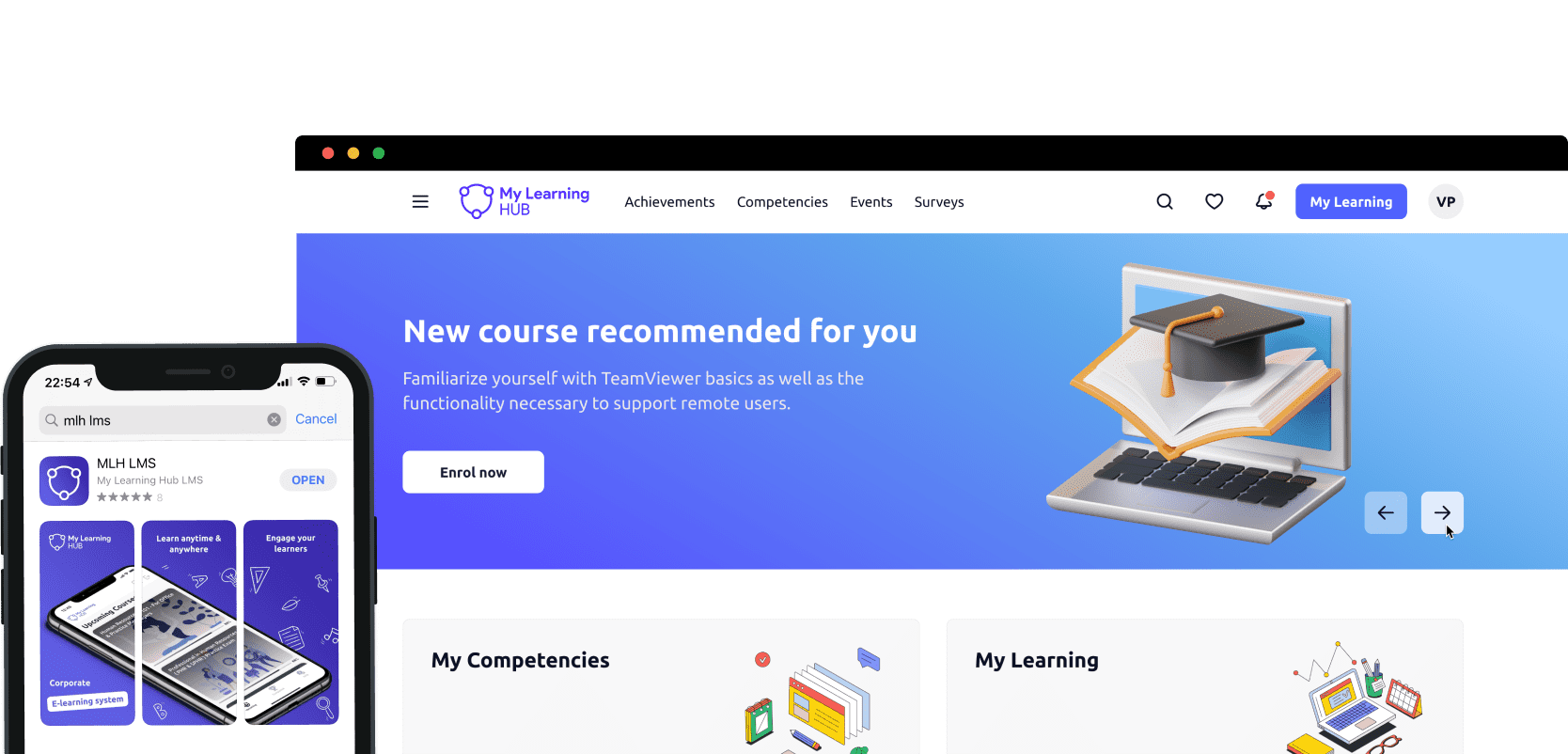
Today's business environment makes it increasingly important for manufacturers to keep up with the latest technology trends. One of the most important trends happening in business today is the increasing role of eLearning.
eLearning allows employees to learn at their own pace, from anywhere they have internet access. In addition, eLearning can help reduce costs by enabling employees to take courses online instead of attending traditional in-person classes.
Many companies are turning to learning management systems (LMS) to train their employees. An LMS can be used to create online courses that teach workers the necessary skills they need to do their jobs. You can also use it to track employee progress and provide feedback.
This post will discuss how an LMS can be used in manufacturing and why it is a valuable tool for training employees.
What are Its Benefits for Manufacturing Businesses?
Learning Management Systems (LMSs) are a type of application or software that helps businesses manage the delivery of educational content to employees or other learners.
Manufacturing businesses can use an LMS to deliver compliance training to employees, provide product information and updates to distributors, or offer continuing education courses to customers.
A learning management system has many benefits for manufacturing businesses, including tracking employee progress, measuring training effectiveness, and improving compliance rates.
In addition, an LMS can save businesses time and money by reducing the need for printed materials and eliminating the need to schedule and deliver training in person.
The Factors to Consider When Choosing an LMS for a Manufacturing Company
When choosing an LMS for a manufacturing company, there are key features to keep in mind:
- It is important to select an LMS specifically designed for manufacturing companies. This will ensure that the LMS includes the necessary tools and resources for managing production processes.
- The LMS should be able to track and report on all aspects of production, from raw materials to finished products. This will allow managers to identify bottlenecks and optimise operations.
- The LMS should be scalable to grow along with the company.
By considering these features, you can be sure to choose an LMS that will meet the needs of your manufacturing company.
How Does an LMS Impact Employees in a Manufacturing Business?
Implementing an LMS for your manufacturing business will significantly impact your employees. The LMS will provide a central repository for your company's training materials, making it easy for employees to find and access the information they need.
In addition, the LMS will allow you to track employee progress and ensure that everyone is up to date on the latest manufacturing procedures.
Finally, the LMS will allow employees to review manufacturing processes from anywhere, at any time. This flexibility will increase productivity and reduce downtime, resulting in a more efficient and effective manufacturing operation.
Some Common Challenges Faced by Manufacturers
One of the most common challenges faced by manufacturers when implementing an LMS is coordinating training across multiple shifts. Employees in manufacturing typically work in shifts, and it can be difficult to provide training that meets the needs of all employees. LMS solutions can help you by providing flexible training schedules that you can adapt to accommodate different shift patterns.
Another common challenge is dealing with a high turnover of employees. In manufacturing, it is not uncommon for employees to move between various departments or even different factories. This can make it difficult to maintain a consistent training programme. LMS solutions can help by providing a central repository for all training materials, making it easy for new employees to access the information they need.
Finally, manufacturers often need to train many employees at once. LMS solutions can help by providing bulk-enrollment features that make it easy to enrol large groups of employees in a single training course.
Tips on Choosing the Right LMS for Your Business Needs
Regarding manufacturing, there are a few key factors to consider when choosing an LMS.
You'll want to ensure that the LMS is designed for manufacturing companies. This may seem like a no-brainer, but you'd be surprised how many LMSs on the market aren't optimised for manufacturing companies.
You'll want to ensure that you can customise the LMS to meet your company's specific needs. Every manufacturing company is different, so it's important to find an LMS that you can flexibly adapt to your company's unique requirements.
You'll want to ensure that the LMS is easy to use and implement. In other words, it shouldn't require a lot of training for your employees to get up and running with the system.
Lastly, you'll want to ensure that the LMS is affordable to align with your L&D budget and scale efficiently with your company’s growth.
Verdict
Although manufacturers face some common challenges when implementing an LMS, the benefits of such a system are clear.
With the right LMS, businesses can improve productivity and efficiency in their manufacturing setting, making meeting deadlines and keeping up with customer demand easier.
Interested in learning more about what a Learning Management System can provide your business? Book a demo with our team.
We would be happy to walk you through the features of our platform and answer any questions you may have.














